This week Janáček Theatre in Brno will see the farewell performance by the prima ballerina of the Brno National Theatre Jana Přibylová. It is going to be her night, with the support of her fans and colleagues. However, she says she should bow for them. We discussed the end of her career, new beginnings and a dancer’s free time. We talked about how unfair it is that dancers’ careers are so short or the fact that she has never really left Brno. As we were leaving the café in the theatre building, there was a big photo of her teacher and mentor Kateřina Gratzerová.
You have been in Brno since 1986 and you have been a soloist since 1989. That is almost twenty-eight years. It is a relatively long career for a dancer. Is it all because of talent, skills or pure luck?
I think it was mainly the latter. I had the perfect body type for this line of work; everybody tells me I look much younger. But it was also a combination of lucky coincidences. For example, after a knee surgery my boss was kind enough to adjust the schedule to make my healing process easier. Had it been a different boss, I think he or she would have told me that I could not dance like that and my career would have been over. Instead, I was able to start working again, I could adjust my choreography. I avoided ruining my knee all over again and I got back on the horse. I was lucky that Mr. Prokeš and Mr. Littera were nice to me and I was able to keep dancing.
Your farewell programme is named Révérence, which means a tribute of sorts. What is the most admirable point in your career for which you would praise and applaud yourself?
The name of the programme is supposed to refer to a tribute to me, but it is rather my tribute to the audience and to all the people around me who have supported me and made me like dancing. I love ballet very much because you also dance for yourself, in addition to dancing for the audience, of course. It is going to be a two-way tribute to those who have been with me throughout my career.
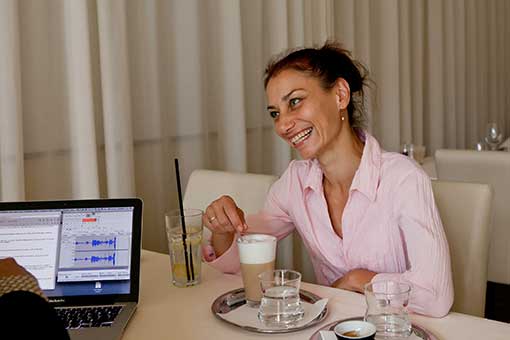 What about any gift, talent, encounter... things that have happened which otherwise would not have happened?
What about any gift, talent, encounter... things that have happened which otherwise would not have happened?
There are many moments like this. First of all I would like to acknowledge my teacher and mentor, the late Kateřina Gratzerová. And especially my parents. My dad is ill so he cannot attend the event and my mom has to stay home with him. They are the most important people in my life and they deserve the most appreciation.
Do you remember what made you start doing ballet in the first place?
You know how people say that something is written in the stars? I think it was like this. I always liked hopping and dancing to the radio as a girl. Even in kindergarten I liked going to costume balls. At one costume party at a hotel in Brno, I went as a princess. One gentleman grabbed me while I was dancing and he went from table to table asking people “whose kid is this”. My parents said I was their kid and the man responded “she is going to be a ballet dancer when she grows up”. My parents said I was able to feel the music. And that’s when it all started. Later I was on a gymnastics team and our coach was a ballet instructor herself. She said I would be a good ballet dancer and she took me to the ballet school managed by Ivo Váňa Psota. I was assigned to professor Gratzerová. I had some background thanks to my gymnastics past, but my ballet career actually started when I was ten.
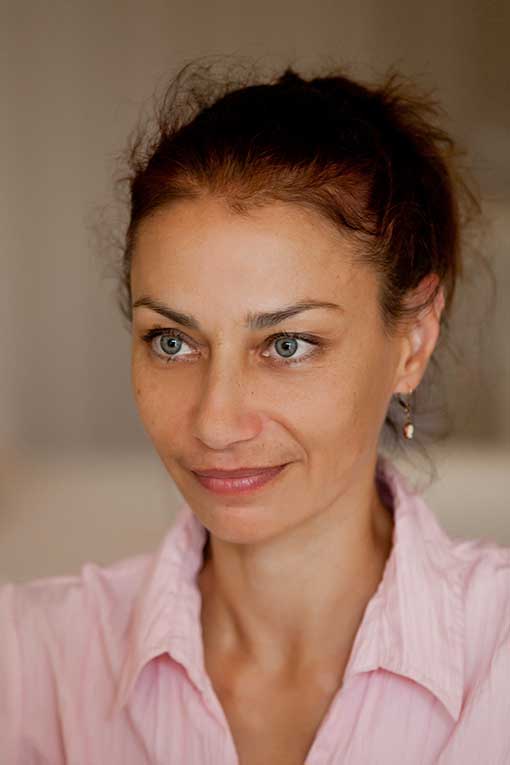 And later you attended a conservatory...
And later you attended a conservatory...
When it was almost time to decide what high school I would go to, I wanted to continue but there was no new freshman class at the conservatory for dancing majors. I would have had to take a special test to skip a year or wait a year. There were three girls here in Brno and we all applied to the conservatory in Prague – under a different name back then. I stayed there until graduation, so I am a graduate of the Prague school. I returned home to Brno and applied to the local ensemble, which I joined in August 1986.
What is the journey like from an unknown member to a recognizable soloist?
The right place at the right time. Luck, talent and hard work. Mrs. Skálová, then-director of the ballet group, kept a good eye on us and she liked giving opportunities to younger members. She was great. The repertoire was broad with many minor roles. And these minor roles led to bigger solo roles. I was also lucky because during my first year there was a ballet competition in Brno. I applied, practiced hard and finished third... I think. And so my career development was like a ladder.
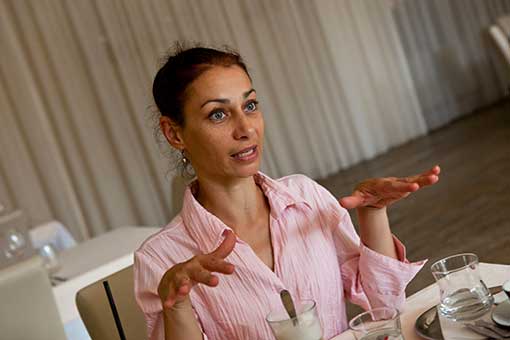 So it was not a skyrocketing career of a stand-in who just got lucky?
So it was not a skyrocketing career of a stand-in who just got lucky?
Nope, I had to do it step by step, really. Yes there were situations when a fellow soloist fell ill and I was asked to fill in as a leading character. “Did you practice, can you do it, will you do it?”, they asked. I would not have been wise to turn it down, even though you do not believe in yourself entirely. You have to take your chances even though you may not know all the steps.
French is the main language in ballet, but the music is in Italian. How do you communicate with musicians?
The French terminology is limited to the ballet steps. As for music, our most useful phrase is “Slow down, maestro”.
Ballet director Mário Radačovský told me that there will be no slowing down anymore.
Yes, he wants us to keep the rhythm but from time to time we ask the conductors to slow down anyway.
Is Czech ballet, or the world of dancing for that matter, specific in any way?
We have classic ballet companies with a long-standing tradition. And at the same time we have had authors like Ogoun, Prokeš, Němeček, Kůra who liked to bring new things. Now we are open to the world, we have visiting choreographers from Western Europe and the trends are mixing. Our choreographers used to prefer Czech authors. The specific attributes are hard to describe.
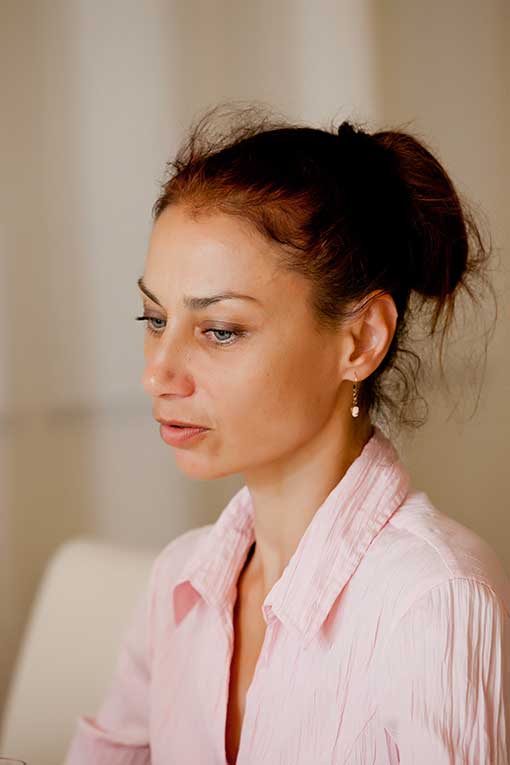 In your spare time you enjoy rafting and biking. Don’t you have enough physical activity at work?
In your spare time you enjoy rafting and biking. Don’t you have enough physical activity at work?
I do, but I miss it during the summer hiatus because you cannot be without it. I like the fact that me and my husband do not think twice about it. We just pack our gear and go. My husband and our son like downhill skiing, too. I cannot join them because of my knee. But I do ice skate, once the pond freezes over.
How does a professional like you get back in shape after the summer hiatus? Can you afford to do nothing for six weeks?
This is very individual. When I was younger I did allow myself one month of genuine vacation. But lately I cannot do without my “daily pole dancing practice”. Joints and muscles may become stiff and I need stretching. And then I have Pilates, Callanetics, yoga and other kinds of physical activity.
Dancers and top athletes usually retire at a very young age. At the same time, people in other professions start making use of their education and experience. What happens next? Not everyone can become a ballet company leader or ensemble director?
Some of them teach at schools of music. Some of them are assigned a desk job in the theatre. Lately many ballet dancers have been thinking about retirement in advance, so they go to evening schools. Some girls may change their profession altogether and become beauticians. My generation had the advantage that there was a pension based on the number of years worked. So you could retire after twenty-two years of professional dancing. This benefit does not exist any longer and everybody has to think about their future. We have been fighting for at least some benefit because the theatre takes all of your free time. You have rehearsals in the morning and performances in the afternoon, with no time left to work on anything else. The new generation does think about a plan B. They know that injuries happen, or your boss can tell you that you don’t fit the profile, without any chance to find work anywhere in Europe. So they expect the worst.
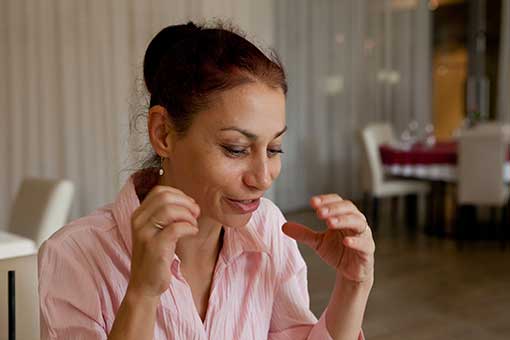 Have you notice any changes following the arrival of the new director Mário Radačovský, in terms of the atmosphere in the theatre, style of work or in the company itself?
Have you notice any changes following the arrival of the new director Mário Radačovský, in terms of the atmosphere in the theatre, style of work or in the company itself?
Not really. I did notice a major change after the arrival of Daniel Dvořák as the new director of the Brno National Theatre and our boss Mrs. Dřímalová. We saw a massive employee turnover. All shows had to be recast and rehearsed all over again as if they were premieres. A lot of the things were new and many of the newcomers were foreigners used to different styles of work. It was extremely hard to put it all together. Then came Mário who is a quality-oriented manager and who is an expert in, and a proponent of, classical ballet. He wants us to perform well and to do our best. All bosses had wanted the same until he arrived, but unlike them at least he wants to create the conditions for that. We had no masseur, physical therapist or medical supervision until he came. So he is very strict, but his approach is outweighed by the conditions. Of course, he likes doing some things his own way. Every new boss does that. And he’s trying to bring the best guest performers.
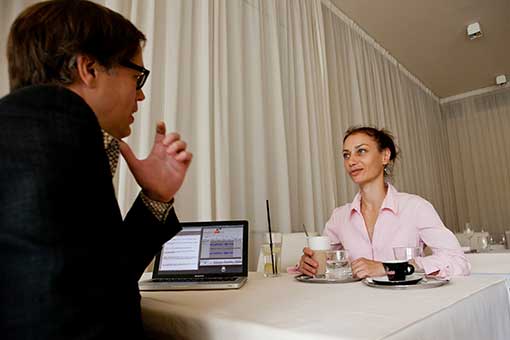 Have you seen the new posters with the faces of people working behind the scenes?
Have you seen the new posters with the faces of people working behind the scenes?
The idea is good but I am not sure people will get that they are going to see an opera or ballet. It is too early to say whether it is going to work.
Do you recall any performance you will never forget?
I recall individual moments rather than complete shows. For example we often perform in Villach. Once we staged Spartacus. It was on a pontoon on the river. It was an outdoor show with the audience gathered on bridges and embankments. I remember the amazing atmosphere. After the birth of my child, I realised that every show is unique. I enjoy being on stage and I cannot wait to be back home, which is exactly why every show is unique.
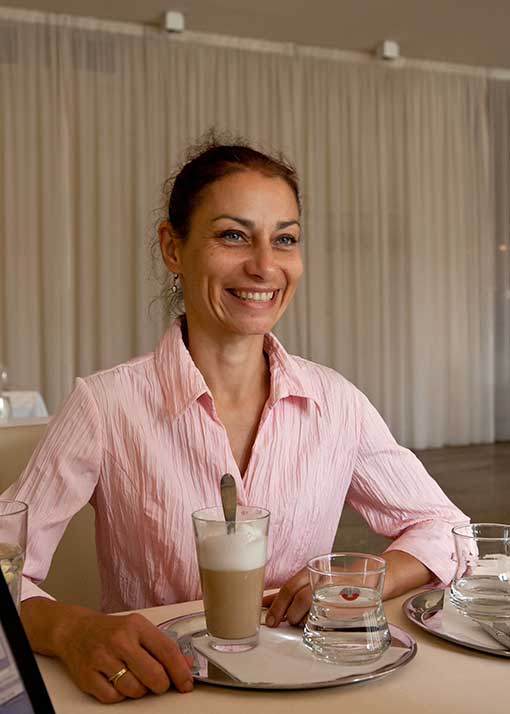 So you have never dreamt about working permanently elsewhere, either here or abroad...
So you have never dreamt about working permanently elsewhere, either here or abroad...
No. I tried one year in Germany and my husband and I also tried Switzerland when the labour restrictions were lifted. But we wanted to stay together and it was hard to find work for both of us. We ended up in Hannover where we both worked but we missed our family and the walks in the typical Czech nature and we returned after one year. I need my environment and my theatre. Here we have always managed without the unhealthy competition. We supported one another and wished each other well. It may sound silly but it is true and that is why I did not want to leave. And then we had the baby at which point you no longer consider moving because you want him to go to school here. I am a family type person.
So your stage and your home will forever be in Brno?
Yep. Brno is mine.





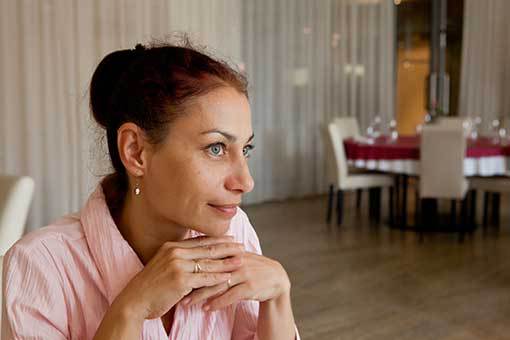


























No comment added yet..